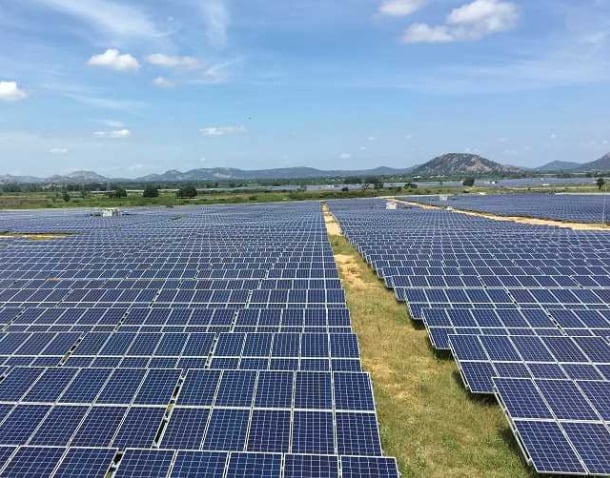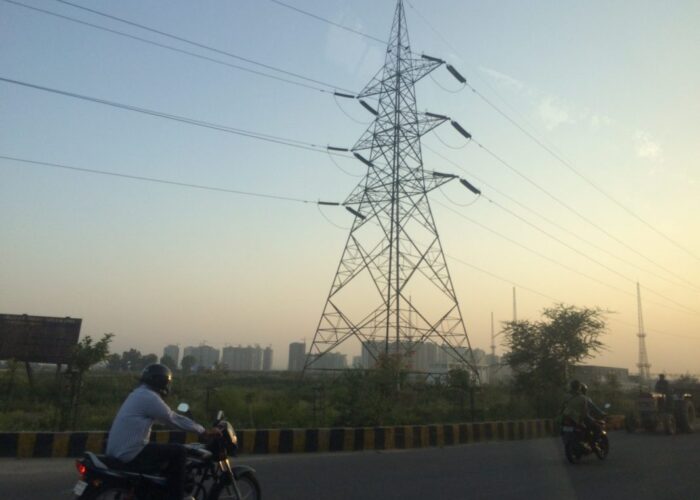
After two years of tumbling solar tariffs hitting the headlines, the Indian industry is feeling the consequences of its risk-taking for the first time, with a series of reversing market conditions and contract renegotiations sparking serious concern.
Following multiple local reports, an executive from a prominent Indian PV developer confirmed to PV Tech, under condition of anonymity, that almost all major Chinese module suppliers have been backing out or reneging on module supply contracts in India, with Trina Solar as the only exception.
Try Premium for just $1
- Full premium access for the first month at only $1
- Converts to an annual rate after 30 days unless cancelled
- Cancel anytime during the trial period
Premium Benefits
- Expert industry analysis and interviews
- Digital access to PV Tech Power journal
- Exclusive event discounts
Or get the full Premium subscription right away
Or continue reading this article for free
A number of factors have led to this situation, including the ravenous appetite that China has for downstream deployment this year, and a lack of polysilicon supply. China’s installations – well above targets – have raised the price of solar equipment for all other markets relying on Chinese supply. India happens to be hugely reliant on Chinese module imports.
Ever since tariffs started tumbling, there have been consistent naysayers predicting that the strategy of presuming module prices would continue to fall would backfire. Consultancy firm Bridge to India, in its latest market insight, said that Indian firms have tended to factor in a 15-20% annual cost reduction or even higher when bidding for projects, so the recent price increases have come as “a shock to the sector”. Indeed expectations of US$0.28/Wp prices this quarter are being quoted at about US$0.34/Wp, said the consultancy – not to mention the 5% addition of the Goods and Services Tax (GST).
Bridge to India added that up to 1GW of projects due to be completed this year could face delays – before even considering the looming threat of anti-dumping duties. An investigation into Chinese, Taiwanese and Malaysian imports is currently under way with the possibility of a provisional anti-dumping duty as early as September 2017. However, the consultancy noted that an oversupply situation for multi-crystalline modules could return for India since the driving force of China’s next additions – the Top Runner programme – will focus on high efficiency mono modules.
Separate Discom threat
In an altogether different issue, Global analysis firm Crisil Research has also noted that the aggressive low bids have caused a “recoiling” in the industry at large, as the country’s distribution companies (discoms) call for renegotiation of power purchase agreements (PPAs) they have signed at higher tariffs.
With this in mind, Bridge to India’s analysis that Indian developers are “caught between a rock and a hard place” seems apt.
Discoms – even some of the financially strongest – have openly noted reservations about honouring letters of Intent for PPAs for as much as 3GW of projects, said Crisil, including Andhra Pradesh (~1.1GW), Gujarat (~250MW), Karnataka (~900MW) and Tamil Nadu (500MW).
Analysing the difference between PPA tariffs and average power purchase cost (APPC) in a state, Prasad Koparkar, senior director, Crisil Research, said: “In all, around 7GW of solar projects tendered or awarded at tariffs of INR5-8/unit over fiscal 2015-2017 could be at risk. PPAs or letters of intent for these capacities, in Uttar Pradesh, Andhra Pradesh, Karnataka, Telangana and Punjab, were inked at tariffs 12-66% higher than the APPC of these states.”
Including solar and wind energy, Crisil Research believes investments worth INR480 billion (US$7.5 bilion) are currently at risk. It also listed a number of potential knock-on effects including multiple court cases and banks becoming more cautious about lending to renewable energy projects.
Crisil did however note a “glimmer of hope” given their analysis of standard PPAs in major states indicating that contract termination is not legally allowed if there is no delay in project commissioning.






